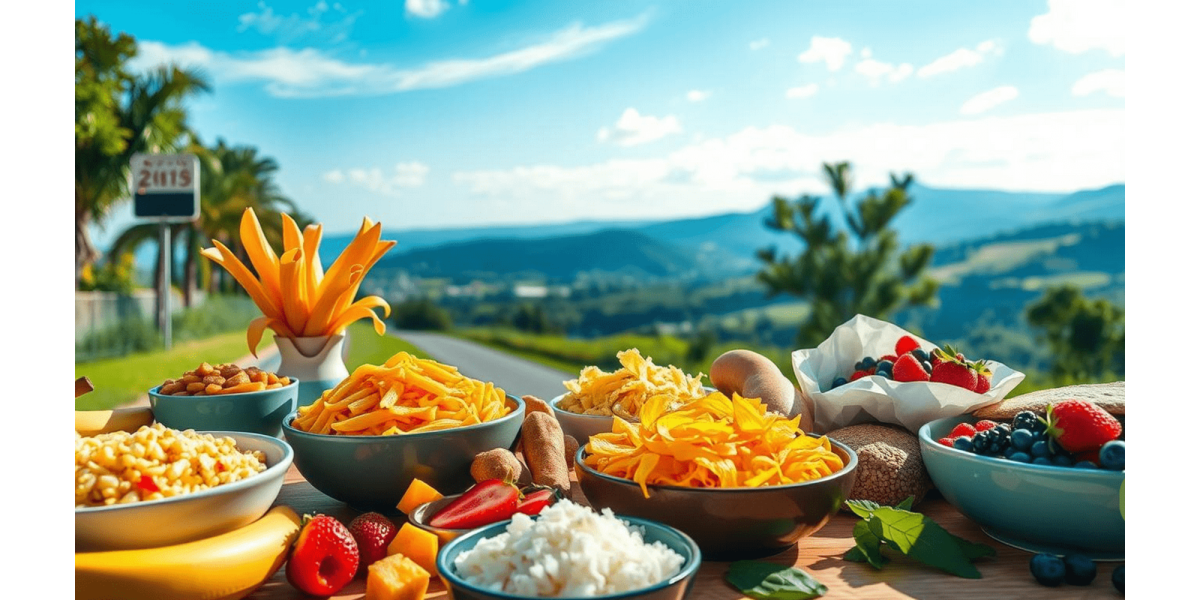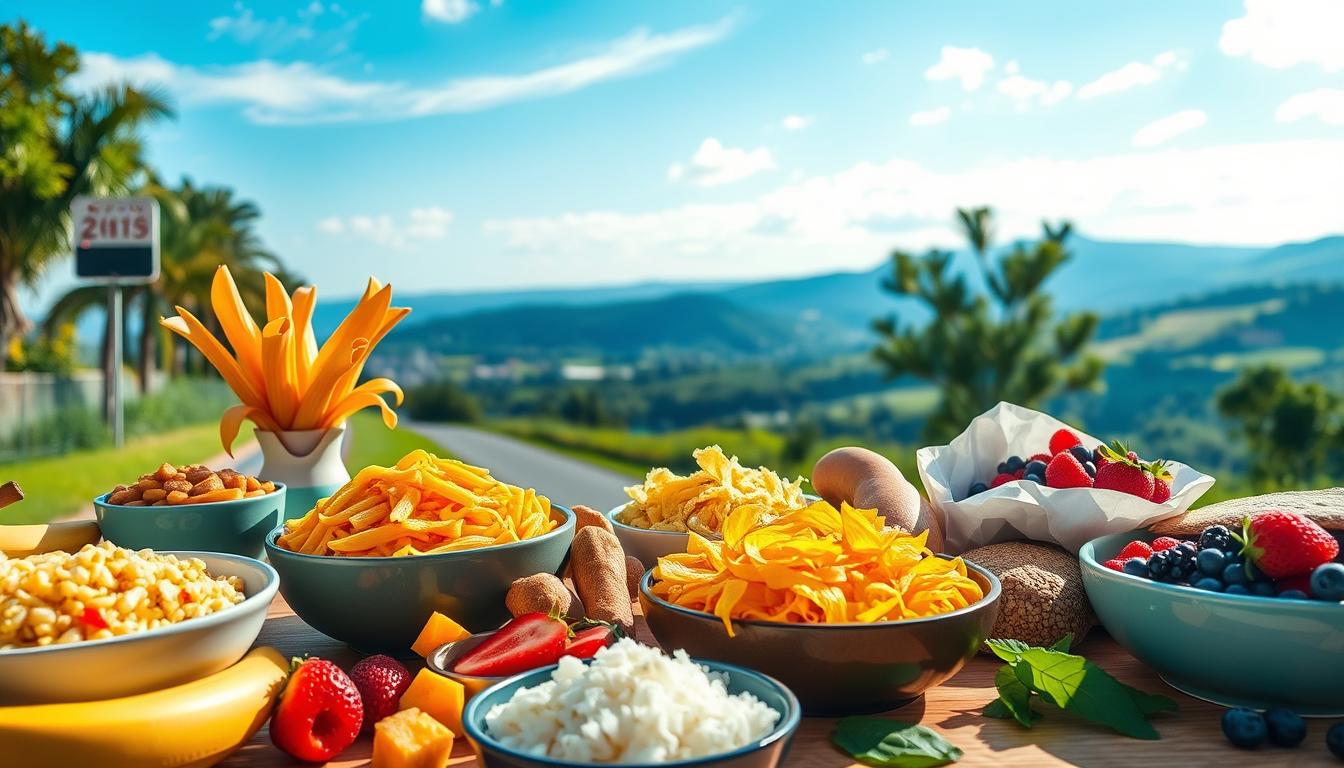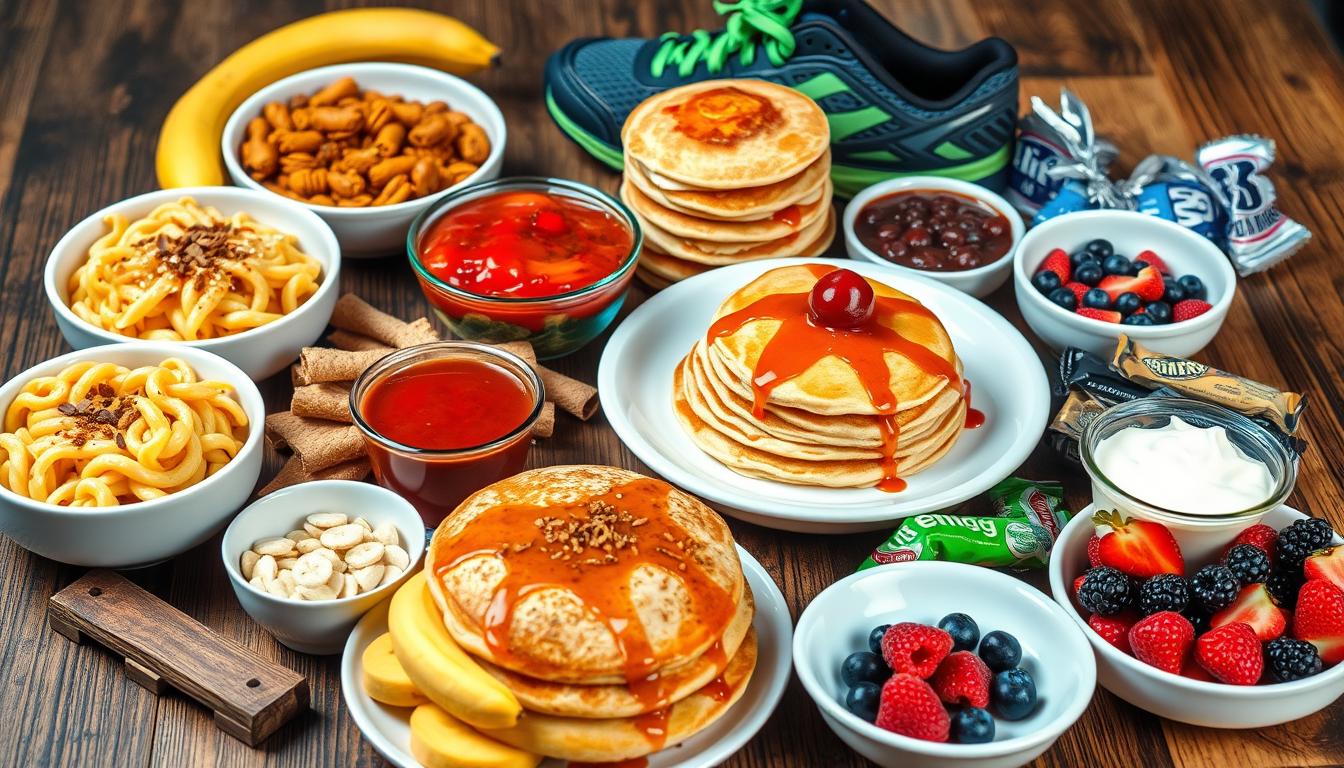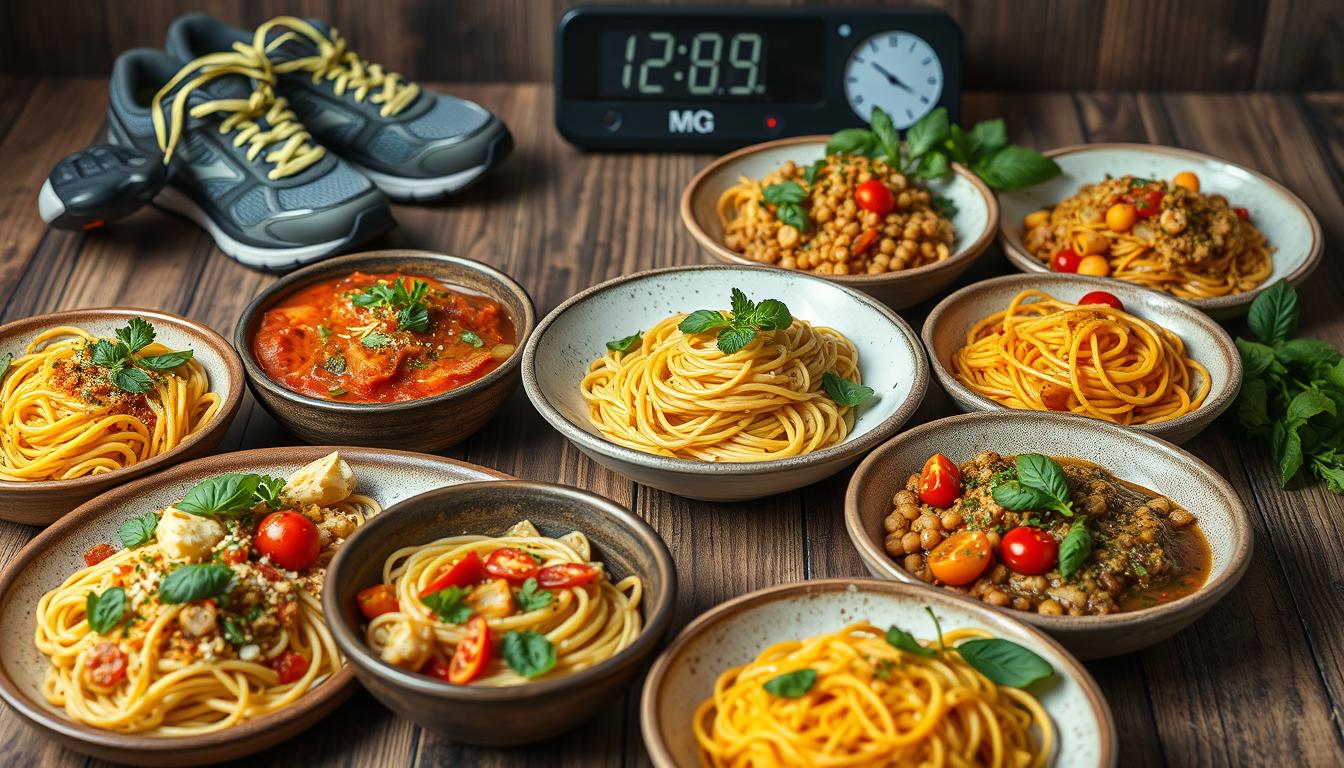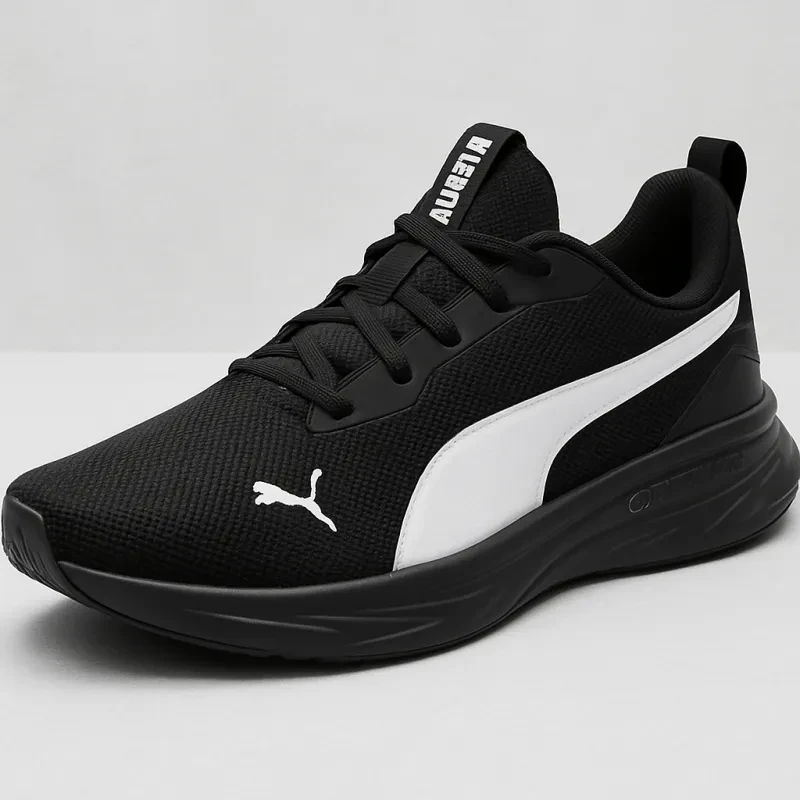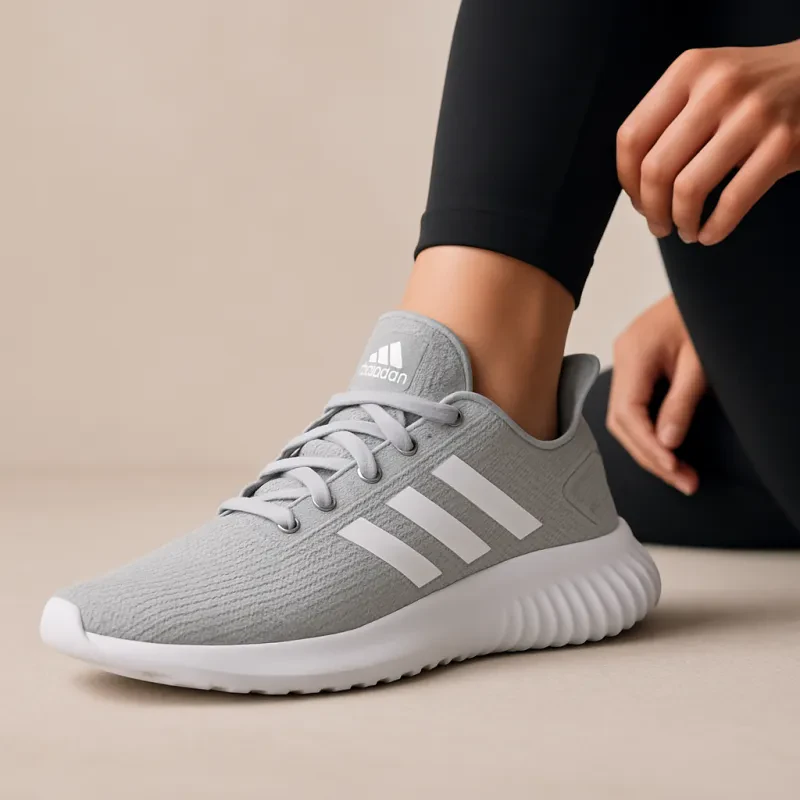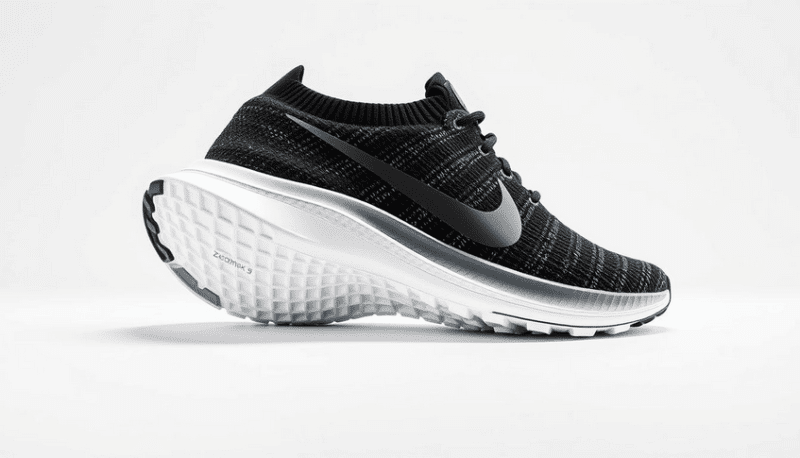Runners around the world are gearing up for the big marathon challenge. They know that loading up on carbs is key to success. Foods like bread, pasta, and rice give the energy needed to push past the wall and hit record times.
Our recipes are packed with carbs but have less fat and protein. They're made to help you refuel and get your glycogen stores ready for race day.
We've got the best 10 carb-loading recipes for you. From classic pasta dishes to whole grain options and quick meals, they're all here. These recipes are full of complex carbs, fiber, vitamins, and minerals to help you reach your endurance goals.
Understanding Carb-Loading for Marathon Success
As endurance athletes, we know carbs are key for fueling our bodies. Carb-loading is crucial for marathon success. It helps us reach our full potential on race day.
Why Carbohydrates Matter for Endurance
Carbs are the main energy source for our muscles during long runs. By increasing carb intake before a marathon, we fill our glycogen stores. This stored energy is then used to power through tough miles.
Timing Your Carb-Loading Strategy
The best time to start carb-loading is 3 days before the race. We should eat 8-12 grams of carbs per kilogram of body weight. This helps our bodies get ready for the race.
Optimal Carbohydrate Sources
Not all carbs are the same. Experts say to focus on complex carbs like pasta, rice, and whole grains. These energy-dense foods give us steady energy. Fruits and veggies are good too, but eat them in moderation to avoid stomach issues.
https://youtube.com/watch?v=KzBXYFXC_FU
Understanding carb-loading is key to marathon success. By fueling our bodies right, we unlock our full endurance potential.
Essential Nutrition Guidelines for Marathon Runners
Marathon runners need to eat balanced meals. These meals should have lots of carbohydrates for energy and proteins for muscle repair. Sports nutrition counselor Nancy Clark suggests mixing carbs with proteins like chicken or ground turkey.
Staying hydrated is key for marathon performance. We should also eat salty foods to replace lost sodium. Eating fruits and veggies in moderation helps avoid digestive problems on race day.
- Carbohydrate-rich meals are essential for providing the energy we need to power through those long-distance runs.
- Hydration strategies play a vital role in maintaining our performance and preventing any dehydration-related setbacks.
- High-carb snacks can be a great way to boost our energy levels and sustain us during the marathon.
By following these essential nutrition guidelines, we can ensure that our bodies are primed and ready to take on the challenge of a marathon. With the right runner's meal prep and marathon nutrition plan, we can make the most of our training and cross that finish line with confidence.
"Carb loading can improve athletes' performance in endurance events lasting more than two hours by up to 3%," as indicated by a review in Sports Medicine.
Top 10 Carb-Loading Recipes for Marathon Preparation
As marathon runners, we know that proper nutrition is key for energy and endurance. Pasta dishes, whole grain alternatives, and quick meals are great for carb-loading. Let's look at some tasty and healthy options to fuel our bodies for the big day.
Classic Pasta Dishes
Enjoy the comfort of classic pasta dishes like Pea Tagliatelle (538 kcal) and Pancetta Fusilli (760 kcal). These meals are satisfying and full of nutrients to support our training.
Whole Grain Alternatives
Looking for more fiber and nutrients? Try our Walnut Linguine (879 kcal) and Courgette Fusilli (497 kcal). They offer complex carbs and essential vitamins and minerals.
Quick Energy-Boosting Meals
Need a fast meal? Our Spaghetti Squash (588 kcal) and Mussels Linguine (770 kcal) recipes are quick and easy. They're perfect for those last-minute meals before a race.
Whether you want a classic pasta dish or a whole grain option, our top 10 recipes have you covered. Fuel your body for the race ahead.
| Recipe | Calories (kcal) | Servings |
|---|---|---|
| Pea Tagliatelle | 538 | 4 |
| Pancetta Fusilli | 760 | 4 |
| Walnut Linguine | 879 | 4 |
| Courgette Fusilli | 497 | 4 |
| Spaghetti Squash | 588 | 4 |
| Mussels Linguine | 770 | 4 |
These recipes offer a variety of carb-loading options. From classic pasta to whole grain alternatives and quick meals. With an average of 668 kcals per serving, they're designed to fuel our bodies for marathon training and racing.
"Carbohydrates are the primary fuel source for endurance athletes, and incorporating a variety of carb-rich foods into your pre-race nutrition plan is essential for optimal performance."
Remember, carb-loading is just part of marathon prep. Don't forget hydration, recovery, and balanced nutrition to be race-ready.
Gluten-Free Carb-Loading Options
Runners on a gluten-free diet have many tasty and healthy options for carb-loading. We'll look at quinoa, rice, sweet potatoes, and other grains to help you power through your training and race.
Quinoa and Rice-Based Meals
Quinoa is a great choice for carb-loading because it's gluten-free. Try our Quinoa Pilaf recipe for a fluffy mix of quinoa, veggies, herbs, and olive oil. For something more filling, our Oven-Baked Chicken and Rice dish combines tender chicken with aromatic basmati rice.
Sweet Potato Specialties
Sweet potatoes are a great source of gluten-free carbs. Our Steak and Sweet Potato Bowls feature juicy steak, roasted sweet potatoes, a quinoa salad, and fresh greens.
Alternative Grain Recipes
Discover grains beyond wheat with our recipes. Our Barley Risotto with Mushrooms and Spinach is a creamy, gluten-free twist on the classic. The Mediterranean Farro Salad mixes farro with veggies, herbs, and a tangy dressing.
Adding these gluten-free options to your pre-race meals will give you the energy you need for your marathon.
Strategic Meal Planning for Race Week
As the big marathon day gets closer, planning our meals becomes key. Nutritionist Leslie Bonci says to slowly add more carbs before the race. Start three days early by adding one extra carb serving to each meal.
This could be a half-cup of rice, a slice of bread, or a fruit. Bonci also recommends salty foods like soy sauce or pickles to replace lost sodium. By Thursday, focus on high-quality protein and keep adding carbs to fuel up for the race.
The 48 hours before the marathon are critical. On Friday, eat easy-to-digest carbs like white bread, pasta, or potatoes. This boosts glycogen stores and gives us the energy we need.
| Day | Carb-Loading Recommendation |
|---|---|
| Monday | Add 1 extra serving of carbs per meal |
| Tuesday | Add 1 extra serving of carbs per meal |
| Wednesday | Add 1 extra serving of carbs per meal |
| Thursday | Focus on high-quality protein and increase carbs |
| Friday | Prioritize easily digestible carbohydrates |
| Saturday | Maintain high-carb intake |
| Sunday | Race day! Ensure proper fueling and hydration |
By planning our meals strategically, we prepare our bodies for the challenge. Whether it's the virtual London Marathon on April 21, 2024, or any other long event, expert advice can boost your performance.
"Proper nutrition is essential for endurance athletes. By gradually increasing carbohydrates in the days leading up to a marathon, we can ensure our bodies are primed and ready to perform at their best." - James Collins, Performance Nutritionist
Combining Proteins with Carb-Loading Meals
When we focus on carbs for marathon training, don't forget lean proteins. Pairing carbs with proteins helps with muscle recovery and glycogen replenishment. This balanced approach is key.
Protein Portion Guidelines
For carb-loading, add a palm-sized portion of lean protein to your meals. Choose grilled chicken, roasted turkey, or baked salmon. This keeps your protein intake balanced without overdoing it.
Recovery Meal Options
After a race, look for meals that mix complex carbs with lean proteins. Try Roasted Vegetable Whole-Wheat Pizza, Vegetable Fried Brown Rice, or an oatmeal bowl with Greek yogurt and berries. These meals help your body recover and repair muscles.
DISCLAIMER
The information contained on Save on Sneaks and our related pages is provided for entertainment and informational purposes only. It is not intended as a substitute for the advice of or treatment that may be prescribed by your physician or other health care provider.
Understand that you are solely responsible for the way this information is perceived and utilized, and do so at your own risk. In no way will Save on Sneaks be responsible for injuries or other problems that might occur due to the use of this website or any actions taken based on the content of this website. Save on Sneaks will not be held responsible for the conduct of any companies and web sites recommended within this site.
Before adhering to any of the information or recommendations or undertaking any exercise program or diet regimen, you should consult your physician.
